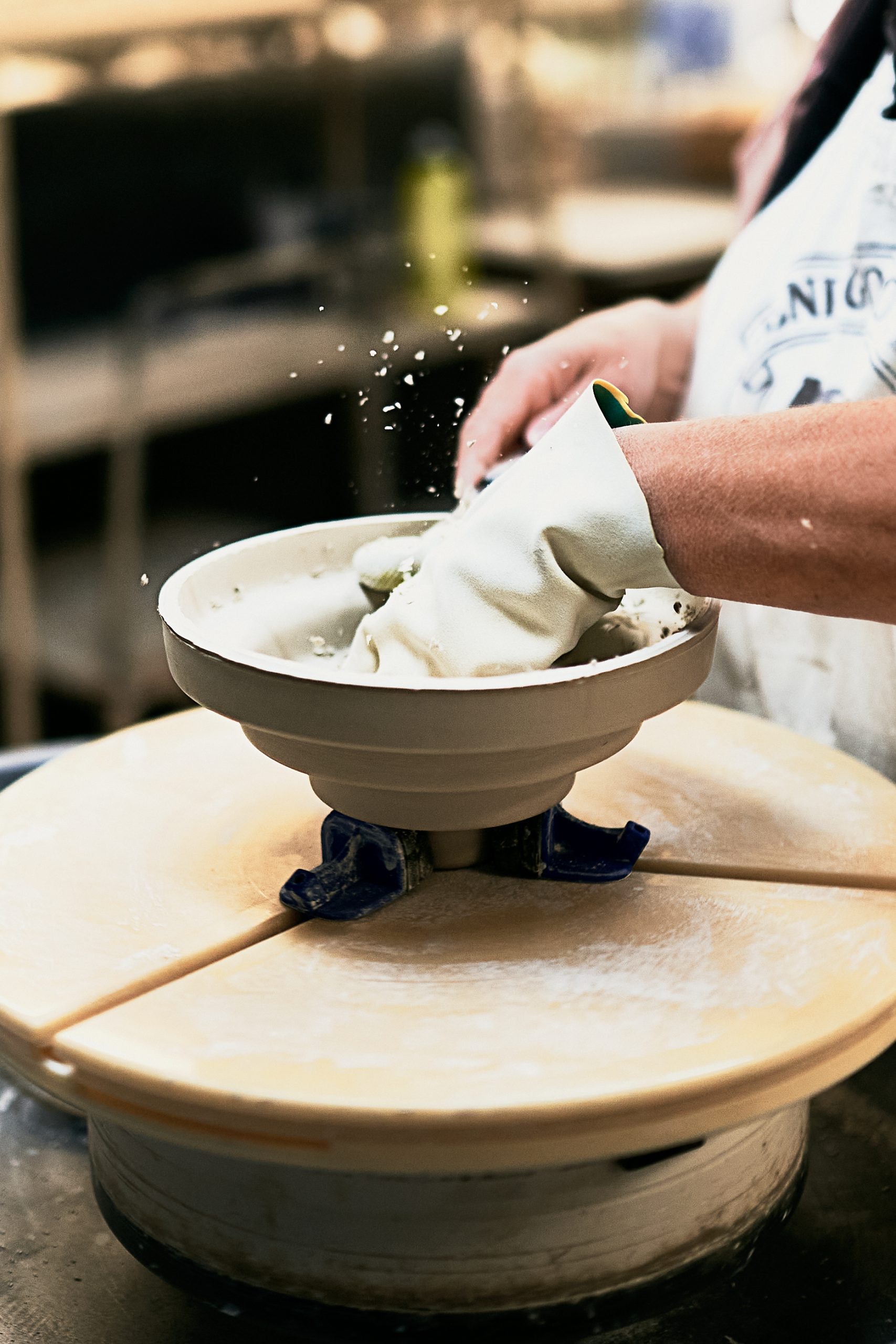Buying Australian: why it’s no longer a sign of parochialism
As the Australian made edition of Kanebridge Quarterly magazine hits stands this weekend, we examine the case for purchasing locally made product
Mention Australian made products to family and friends and it’s likely everyone will agree it’s a good thing to do.
Polling by Roy Morgan as recently as February this year shows 80 percent of shoppers consider buying Australian made products important, mainly because it supports local jobs and the wider economy. The survey also found that 67 percent of shoppers reported buying Australian-made products ‘often’ or ‘always’.
But while most of us are happy to buy, say, Australian made peanut butter or even skin care products, we’re less inclined to choose a locally crafted table over an imported product, mainly because of the price.
Canberra-based craftsman Rolf Barfoed says COVID changed attitudes to buying local. With many working from home and borders closed to everyone and everything — including many goods manufactured offshore — Australians began to reassess their buying practices, as well as their domestic environments.
“We got quite busy after COVID struck because people were forced to look inwards and instead of going overseas on holiday, they had a bit of money to spend locally,” Barfoed says of his workshop where he manages a team of three. “There were a lot of people working from home and they were looking at their homes more critically.”
Desks and bookshelves were a popular choice, as many looked to properly furnish home offices, while beds and bedside tables also rated highly, providing a sense of sanctuary and comfort during uncertain times.
However, as restrictions lifted and with more people growing concerned about rising cost of living pressures, Barfoed says he has noticed a shift in buying patterns.
“Ever since the threat of recession, things have tightened up and sales have slowed,” he says.
For more stories like this, order your copy of the latest issue of Kanebridge Quarterly magazine here
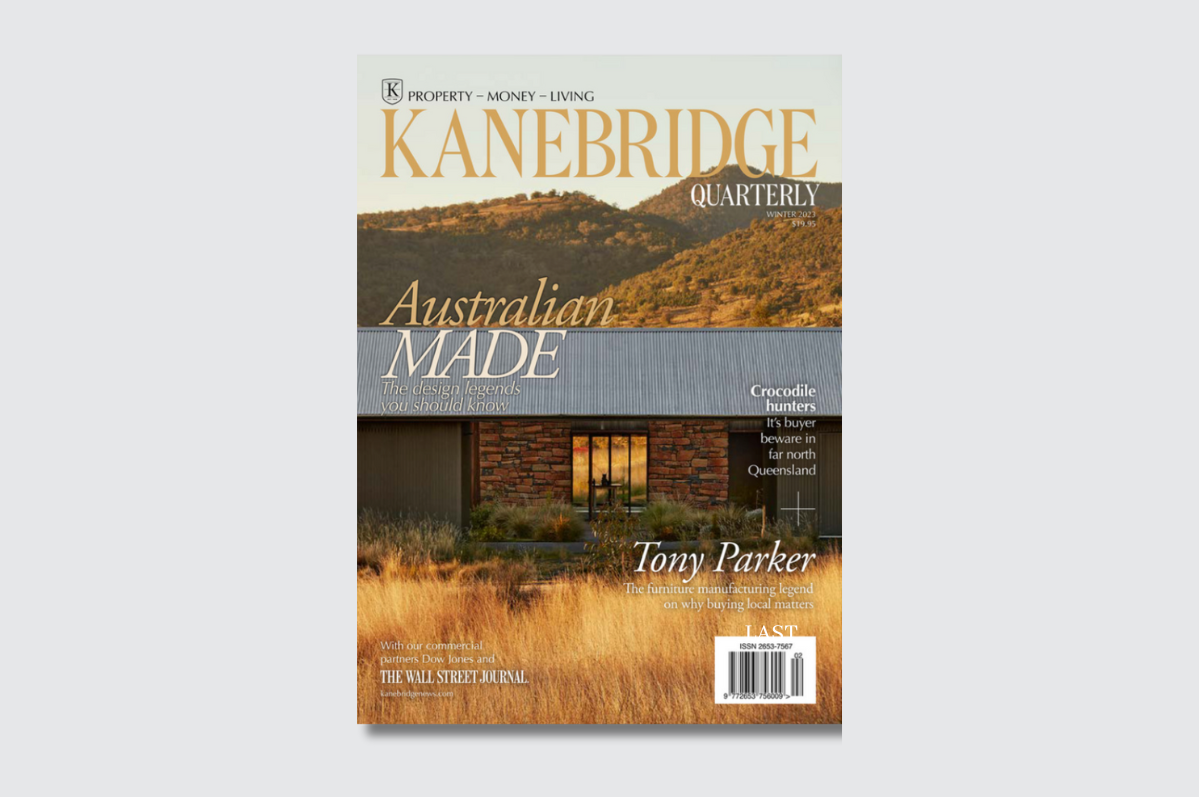
While some may be put off by the higher costs — a reflection of higher wages being paid to Australian workers — Barfoed says the final price is just the start of the story. He gains most of his work from Sydney and Canberra via word-of-mouth commissions, allowing buyers to connect with their piece of furniture from the start. And some connections are stronger than others.
“In Canberra there is a pool in Manuka and there was a big oak tree over the pool which came down in a storm,” he says. “We had people who had swum in that pool as children who asked if we could make something out of the tree for them, so we created two dining tables. It helps that the timber miller is well connected in town and he has the means to pick up trees like that.”
Most timber, however, is sourced through more traditional avenues, although local timbers have been harder to find since the 2019/2020 bushfires.
For those after something unique and fit for purpose though, the experience of commissioning from a local maker is unmatched.
“The option for customisation is a big factor and we will tailor it to exactly what the client wants,” Barfoed says. “It is always a nerve wracking experience handing over a piece of furniture. You want the client to be happy with your work.”
Kate Stokes, co-founder of award-winning Melbourne lighting and furniture studio Coco Flip says ‘locally made’ also means shorter lead times and more reliable supply chains for retailers, designers and homeowners.
“We have really good relationships with all our manufacturers which means there’s a lot more quality assurance,” she says. “If something goes wrong, you just send it back to us. You can’t do that so easily if it’s arrived by ship.”
While the products, which include their Coco pendant light, Mayu floor lamp and Sequence dining tables often do cost more upfront than imported items, Stokes says they are better financial investments over the long term.
“We want to design things that people are not going to tire of in five years so our designs are classic, contemporary and able to fit into a range of styles and interiors,” she says. “Construction has to be robust and material choices have to be solid and last a long time.
“We want people to love them for a long time.”
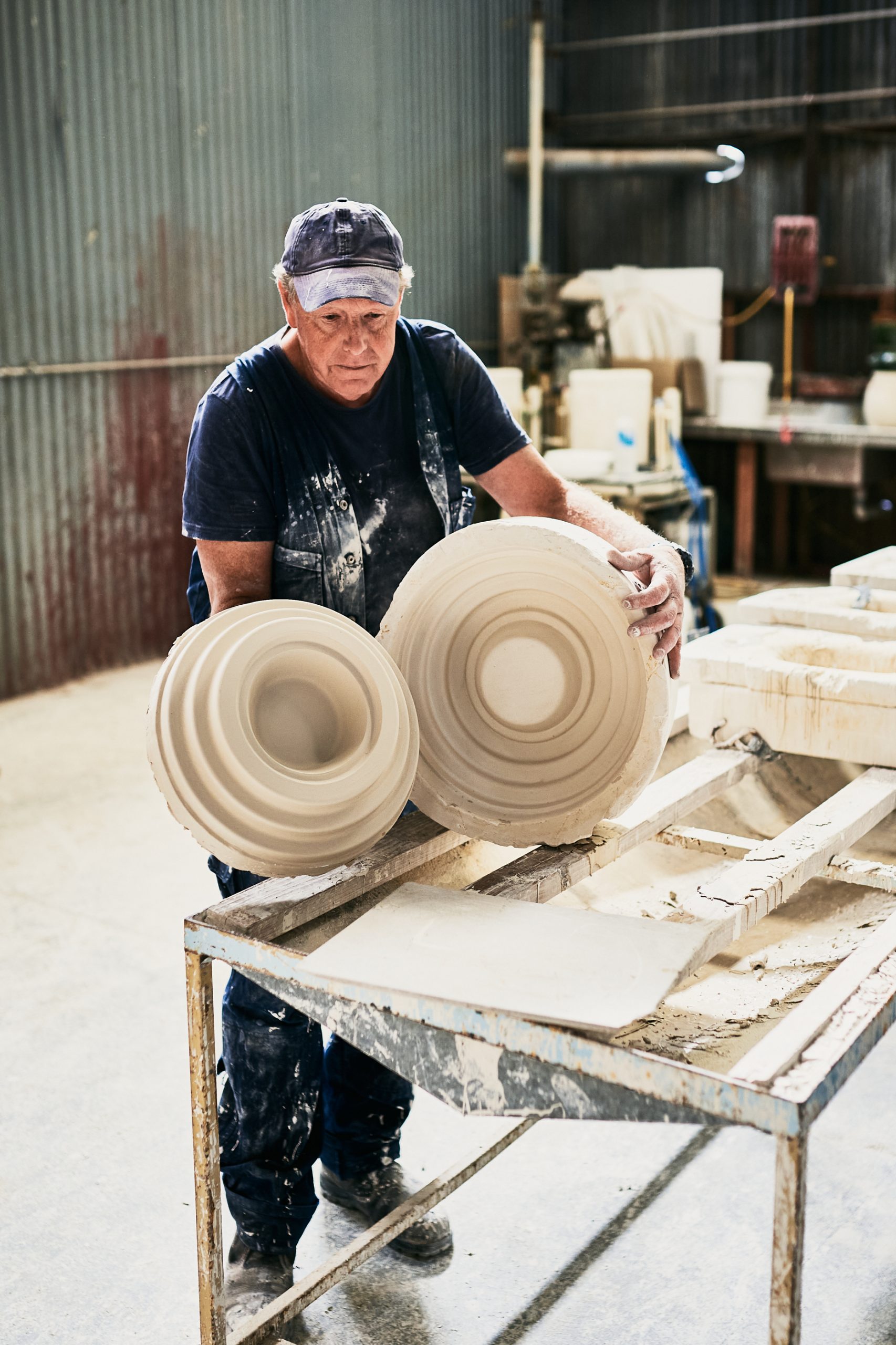
Stokes and co-founder Haslett Grounds also work with longstanding manufacturers such as Specialty Pleaters in Williamstown, which was founded in 1925 and is now the last remaining pleating studio in Melbourne.
“We love working with local manufacturers and Specialty Pleaters have been in business for about 100 years but they are potentially facing closure because production is increasingly going off shore,” Stokes says.
Australian furniture manufacturing legend, Tony Parker, of Parker Furniture fame says if Australians don’t support locally made furniture and homewares, they will cease to exist — and those traditional skills will all but vanish.
“When you buy locally made, the goods are also serviced in Australia and the infrastructure to manufacture is here,” Parker says. “You have apprenticeships for training people in cabinetwork, upholstery and other skilled trades.”
He laments what he sees as the decline in quality of mass produced goods flooding the Australian market from overseas, not just because it means jobs are taken offshore, but that buyers are not getting value for money.
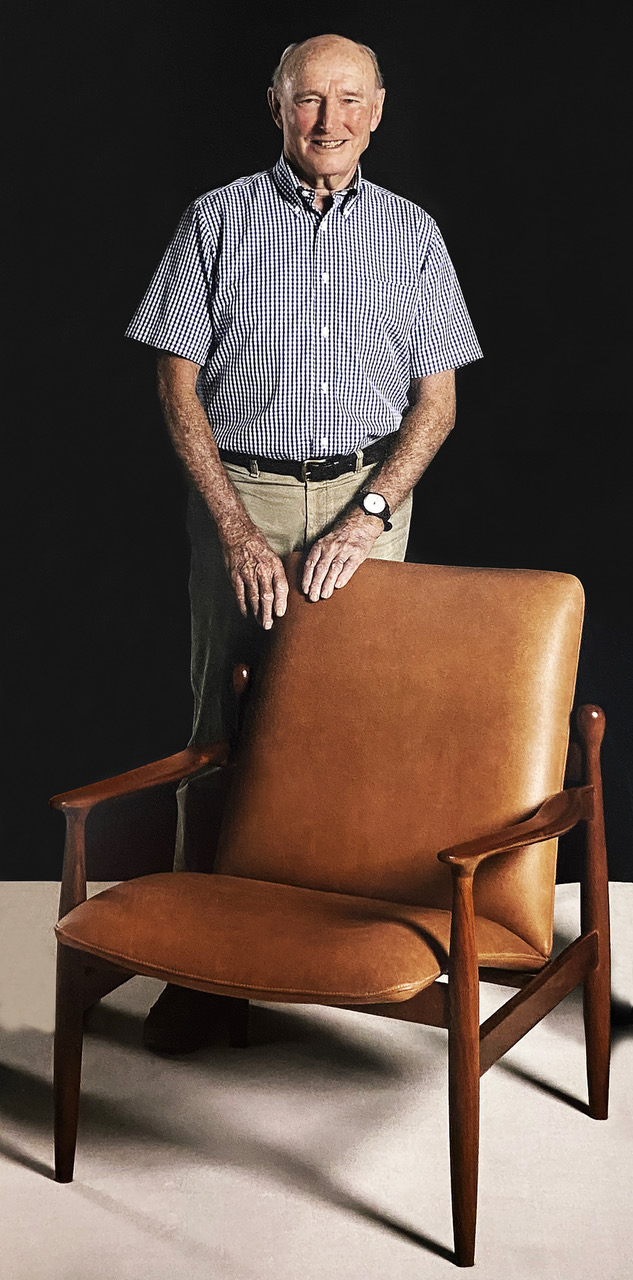
“They have slowly eroded quality,” he says. “Everyone closes on price. In actual fact, people are paying more than they were in the 70s, relative to wages, and it was better made then.
“The retailer is looking for a cheaper price and the customer is not looking at quality.”
Fred Kimel, founder of Handkrafted, which connects Australian makers directly with the public, says buying locally is an investment in the future, in more ways than one.
“The result is (a piece) typically much higher quality than the vast majority of furniture that is manufactured overseas,” Kimel says. Locally made bespoke furniture is made-to-last and will retain value as it can always be sold or passed on — it’s far less likely to find its way into landfill.
“On the sustainability front, our local regulations help to ensure that timber used by local makers is forestry certified and not from unregulated or illegally logged forest timber.”
And if it’s that lovely rush of endorphins experienced when you buy that floats your boat, buying an Australian made product has to be the ultimate shopping high.
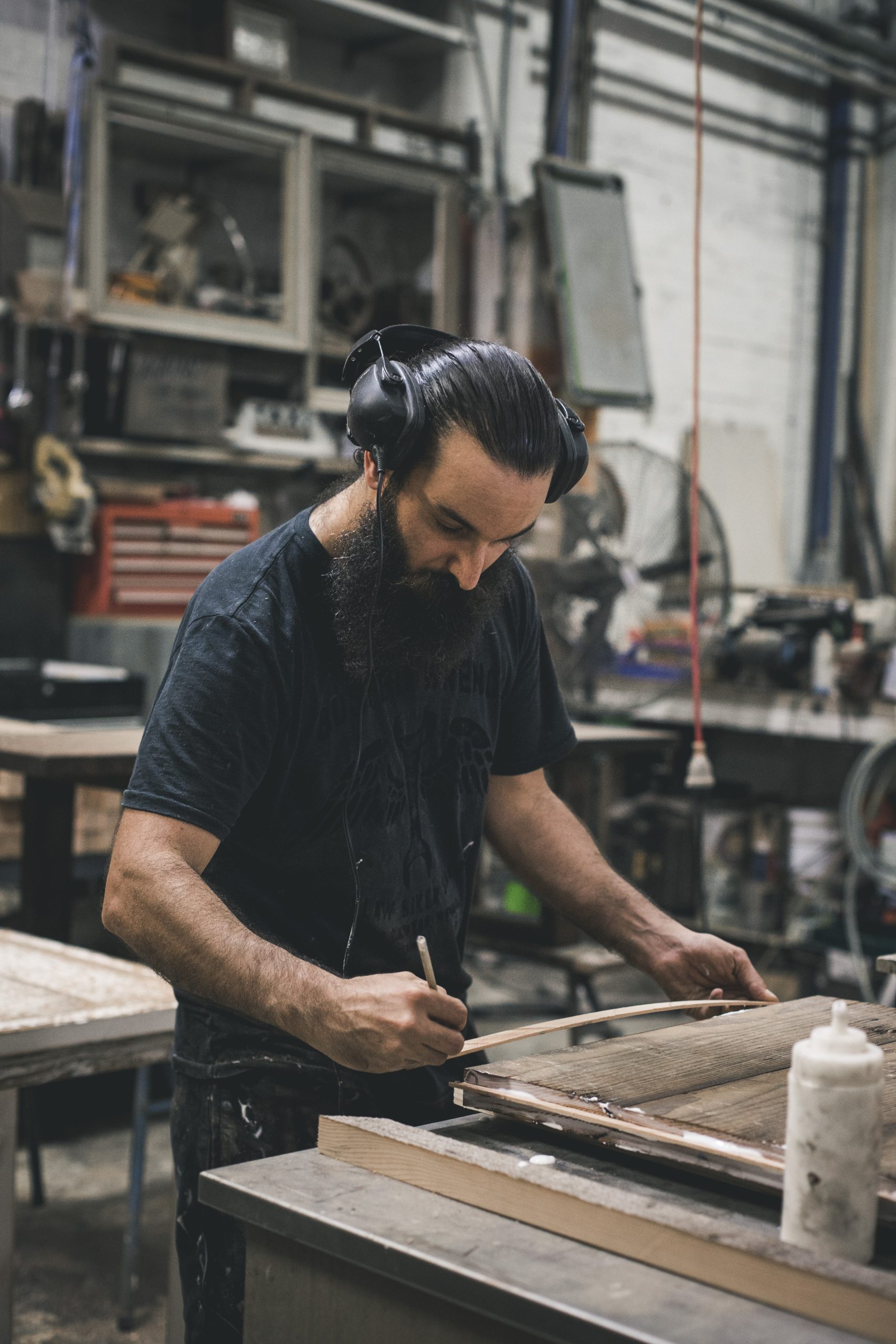
“Perhaps one of the biggest draw cards is simply the enjoyable process of working so closely with a local maker,” Kimel says.
“Clients will often visit their workshops and take much more interest in the selection of raw materials, design decisions and production methods. It’s an experience that lives on through the product.”
Advance Australia fair, indeed.
Chris Dixon, a partner who led the charge, says he has a ‘very long-term horizon’
Americans now think they need at least $1.25 million for retirement, a 20% increase from a year ago, according to a survey by Northwestern Mutual
The G80 Sport makes its entrance, displaying dynamic design details and elevated automative capabilities.
Juma Al Majid LLC, the exclusive dealer for Genesis in the UAE, has launched the G80 – a cutting-edge luxury sedan. Merging tradition with innovation, this model embodies Genesis‘ relentless pursuit of superior design, state-of-the-art technology, and unmatched luxury.
The new G80 marks a significant milestone in introducing Korean automotive excellence to the UAE, highlighting the brand’s commitment to providing exceptional experiences.
Meticulously crafted, the redesigned G80 adheres to the ‘Athletic Elegance’ design philosophy synonymous with Genesis. This luxury vehicle features refined details and cutting-edge specifications, combining comfort and style to elevate every driving experience to new heights.
“The debut of the all-new G80 in the UAE market propels our vision to converge advanced technology and refined elegance”, stated Suliman Al Zaben, Director of Genesis, UAE. “This launch is a step forward for Genesis in the UAE market and strengthens our efforts to offer ultimate luxury, innovation, and unique design to our incisive customer base.”
With a new dual-mesh design, the G80’s exterior enhances the sophisticated appearance of the Two-Line Crest Grille, paired with iconic Two-Line headlamps featuring Micro Lens Array (MLA) technology. This highlights Genesis’ commitment to harmonizing advanced technology with elegant design. The five 20-inch double-spoke wheels exude a dynamic aesthetic, resembling sleek aircraft lines, complementing the car’s parabolic side profile. Rear diffusers conceal mufflers adorned with distinctive V-shaped chrome trim inspired by the Crest Grille, embodying an eco-conscious ethos in today’s technology-driven era.
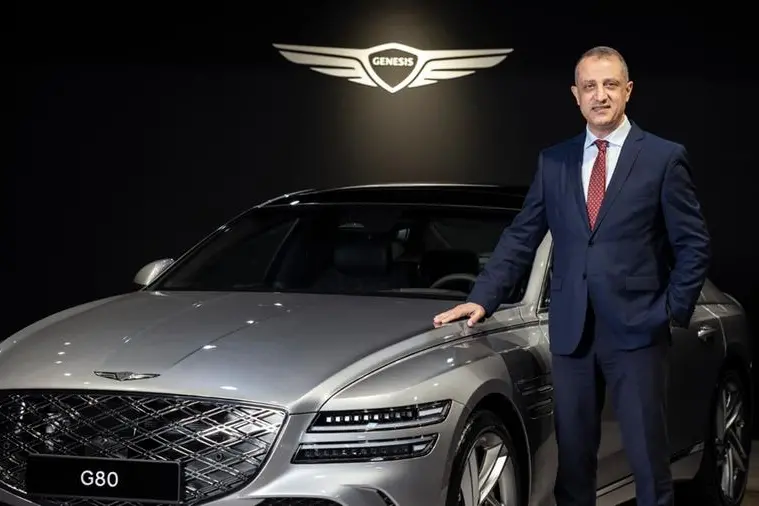
The G80 reinforces Genesis’ design philosophy in its interiors, inspired by the uniquely Korean concept of the Beauty of White Space, integrated with state-of-the-art technology to create cosmetic brilliance for users. The 27-inch-wide OLED display seamlessly combines the cluster and AVN (Audio, Video, Navigation) screen in a horizontal layout, extending to the center fascia, showcasing its flair for innovative technology. The touch-based HVAC (Heating, Ventilation, and Air Conditioning) system offers ease of control, while the redesigned crystal-like Shift By Wire (SBW) ensures a comfortable grip, infusing a sense of luxurious convenience.
With its dual-layered Crest Grille and expanded air intakes, the G80 Sport package delivers a dynamic and sporty spirit. Exclusive interior options, such as a D-cut steering wheel and carbon accents, enhance its sporty allure. Equipped with Rear Wheel Steering (RWS) and Electronic Limited Slip Differential (E-LSD), the G80 Sport 3.5 twin turbo model is built for stable control during high-speed maneuvers.
Fitted with advanced safety and convenience features, this luxury sedan includes Remote Smart Parking Assist 2, Lane Following Assist 2, and a Fingerprint Authentication System. The three-zone HVAC system provides customized climate control for all passengers. With two powertrain options – a 2.5 turbo engine delivering 300 horsepower and 43.0 kgf·m of torque, and a 3.5 twin turbo engine producing 375 horsepower and 54.0 kgf·m of torque – superior driving dynamics ensure a silent and luxurious driving experience.

Chris Dixon, a partner who led the charge, says he has a ‘very long-term horizon’
Americans now think they need at least $1.25 million for retirement, a 20% increase from a year ago, according to a survey by Northwestern Mutual









